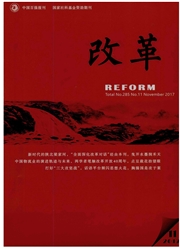

 中文摘要:
中文摘要:
近年来,有些学者提出凯恩斯主义不适用于中国经济。欧美经济学界在20世纪70年代就曾经试图否定凯恩斯主义,但随之诞生的是新凯恩斯主义。其批判地继承凯恩斯主义,承认理性预期等假设和提供了微观经济的基础,并且仍然主张政府应该适度干预经济,使用“粗调”手段。现阶段的争论一定程度上是混淆了经济周期理论和经济增长模型。我国经济政策应主动应对经济低谷,同时加强基础设施和人力资本投资,获得经济增长的长期动力。
 英文摘要:
英文摘要:
Recently, there are some arguments to "bury" Keynesian economics in China. Keynesian economics has been seriously challenged in western scholars in 1970s, but New-Keynesian School consequently came into being. Taking rational expectation and micro-economics foundation into account, New-Keynesian School argues that the government should properly adjust the economy, but should do the coarse-tuning work. We argue that the current debate on Keynesian economics confound the theory of business cycle with the model of economic growth. While dealing with the troughs of business cycles, our economic policy should target at driving up economic growth with investments in infrastructures and human capital.
 同期刊论文项目
同期刊论文项目
 同项目期刊论文
同项目期刊论文
 期刊信息
期刊信息
